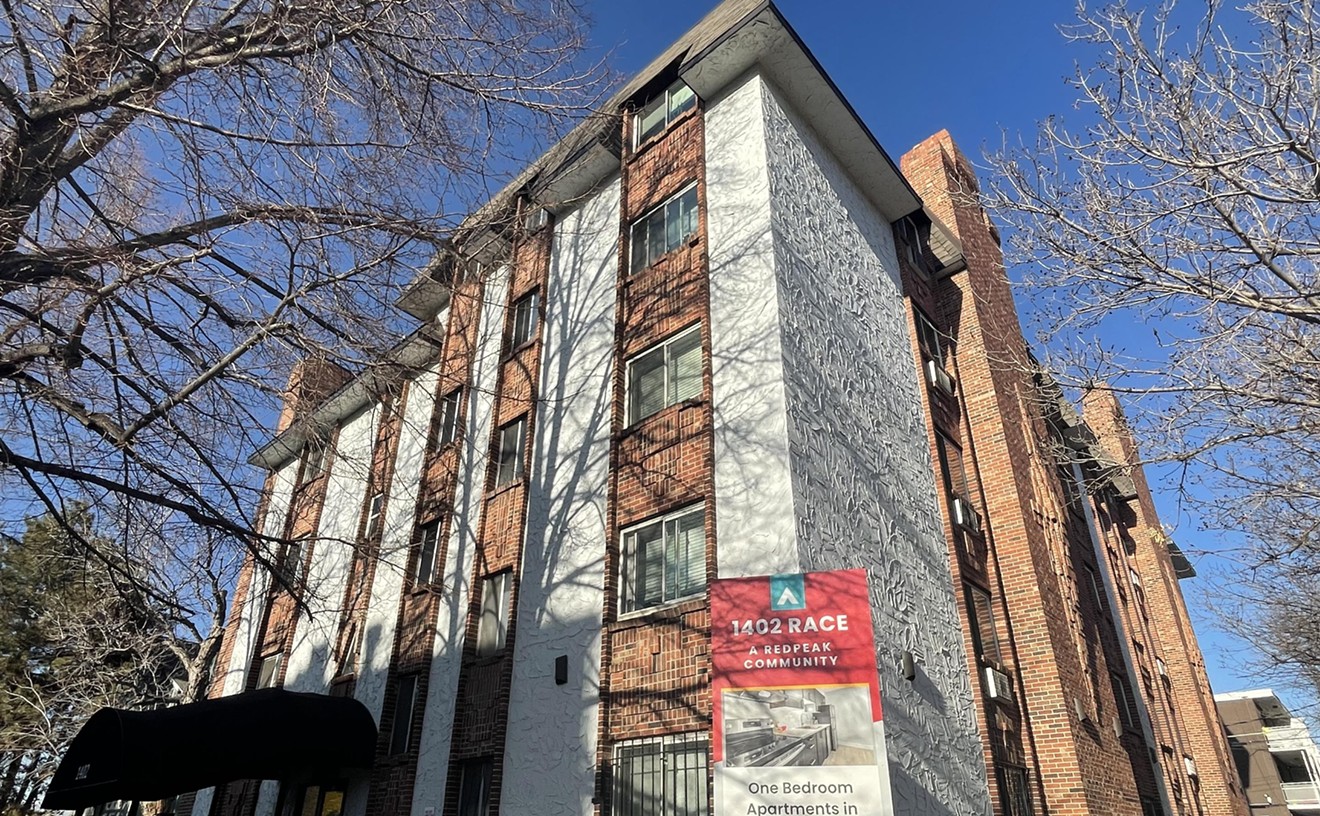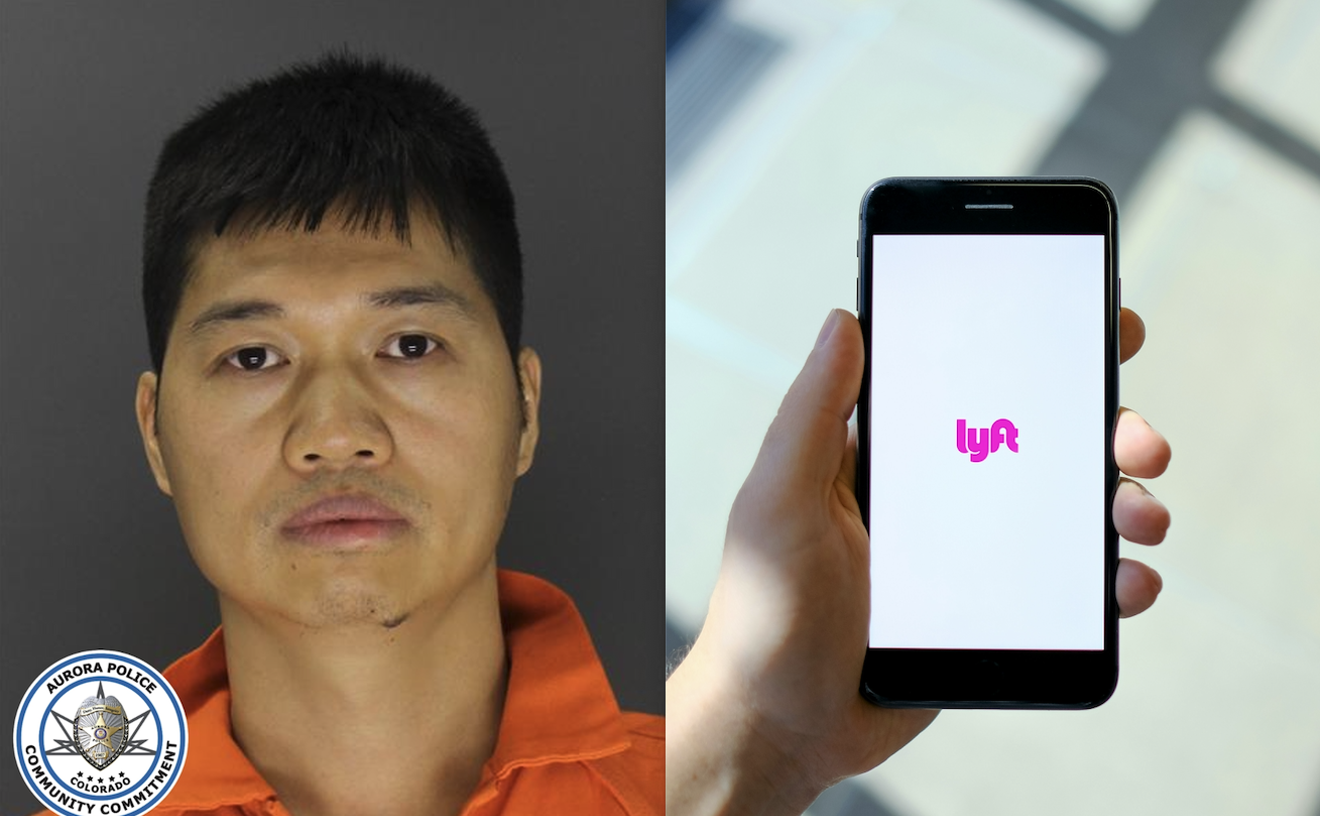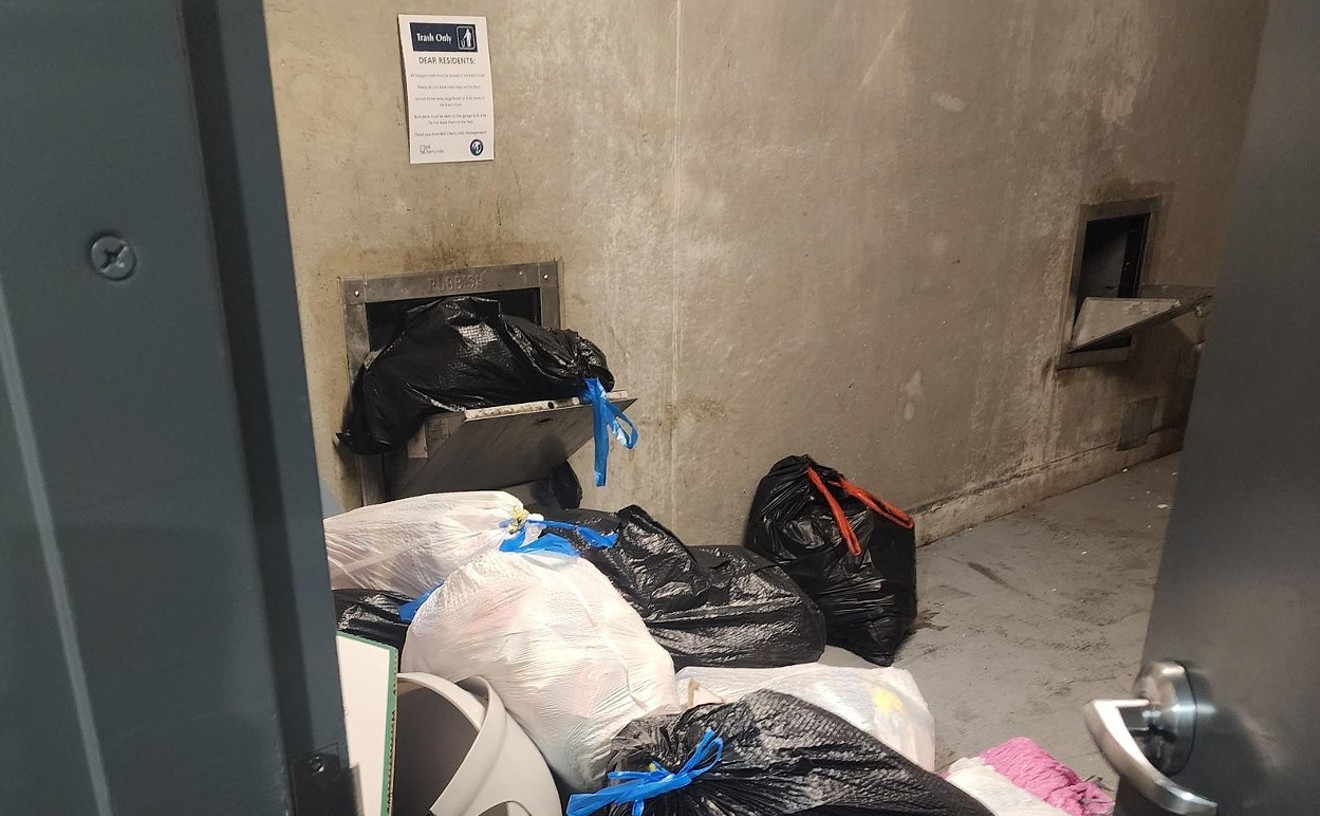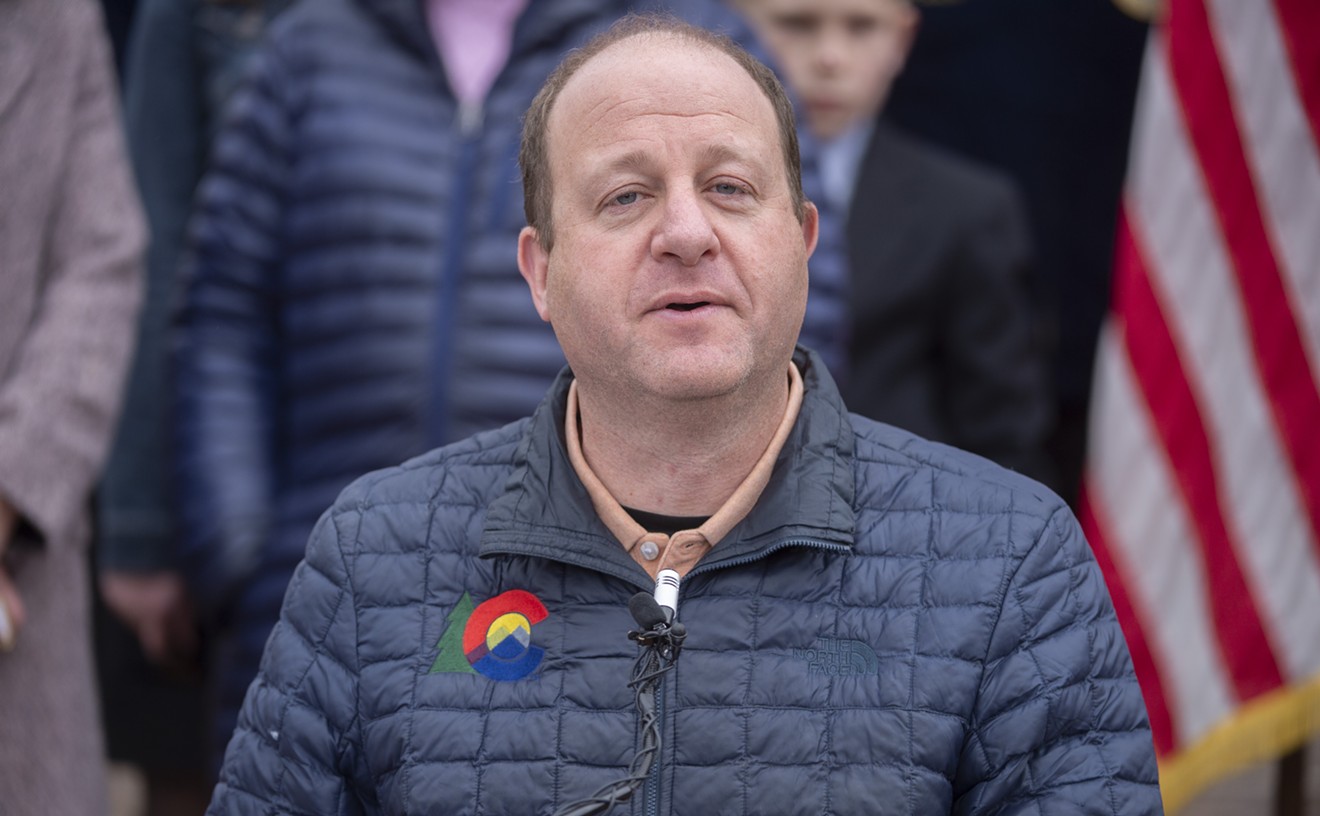On a typical morning, near the end of a shift, some of them sit on a pair of vintage sofas absentmindedly watching exercise shows on ESPN, while others read newspapers or study medical textbooks. There is chat about new golf clubs and new techniques to get an aspirator down a choking patient's windpipe. Some are reminiscing about a grisly accident the night before on C-470 that left two people dead and six seriously injured. Paramedic Andy Fox and his partner, Tony Sheppardson, talk about swinging by the hospital to see how the teenage boy they transported from the accident is doing after back surgery. A speaker mounted on the wall crackles with police and fire chatter. So far, none of the calls are for Columbine crews.
"The best way to get some action is to go pick up a nice meal," says Sheppardson. "You'll sit down, and right as you start eating, you'll get a call. I've lost a lot of good meals that way."
A few minutes later, Columbine gets its first call of the morning. In response to a specific tone from the speaker, two paramedics throw on their jackets and rumble down the creaky stairs to their ambulance. They're responding to a 911 from a woman whose nineteen-year-old daughter, ailing with palsy, is having an allergic reaction.
The rest of the crew looks a little envious, even though this call isn't one of the rare "code threes"--the paramedics' favorite, when the call is serious enough to warrant "running hot" with lights and sirens clearing the way.
"This business is a lot like the Army," says Columbine president Vince Cissell, who's somewhat of a philosopher after decades in the ambulance business. "You hurry up and wait."
But although this morning is a slow one for Columbine's paramedics, they have the satisfaction of knowing that they're still in business. The mortality rate among small ambulance companies in Denver has skyrocketed in the past several years, but Columbine is healthier than the majority of the patients it transports. Occupying the same two-story building in Littleton it has since the day it opened in the early Sixties, Columbine remains the last of the old guard. It's run by the Cissell family, which dispatched the company's first ambulance on February 22, 1963. And it's still a mom-and-pop operation: Wife Shaaron and son Kevin are dispatchers, while Vince runs the show.
Vince Cissell's first two decades in the field were the days he refers to as the "ambulance wars," featuring a collection of small independents fighting over the city's injured and ailing. "I remember this ambulance company that worked out of Denver when I first got started," recalls Cissell. "The company was run by this seventeen-year-old kid in his mom's station wagon. He had a red light on top, a phone, and his girlfriend's thirteen-year-old brother as his assistant."
Those days are long gone. "When I got into this business, there were about thirty companies operating in the metro area," Cissell says. "By 1975 that number was down to six." Now Columbine is the oldest local ambulance company in metro Denver, as well as the last that is family-owned.
The disappearance of the mom-and-pop companies can be attributed to the arrival of ambulance corporations that Cissell says operate like fast-food chains. One of the biggest of these national conglomerates is American Medical Response (AMR), a publicly traded company that recently relocated its corporate headquarters to Aurora from Boston. AMR has helped transform the ambulance industry nationwide by buying up smaller operators in many major cities and consolidating: AMR currently employs more than 12,000 people in 27 states.
In the early Nineties AMR made its move into metro Denver and snapped up, among others, the Ambulance Service Company (ASC), which had been operated by the Unrein family for three generations. ASC sold its sixteen metro-area dispatch stations to AMR in December 1992. Carl Unrein, who was ASC's CEO at the time of the sale and had worked for the family company in some capacity all his life, says that it was a family decision to sell.
Unrein, now the senior vice-president of AMR's Midwest operations, explains that the business has changed. "The key to being successful now is efficiency," he says, "and to do that, you must hold costs down." To do so, AMR employs what it calls "staffing by demand," scheduling paramedics by determining peak times for work. The Cissells follow their own system, allowing that AMR's is efficient but noting that accidents aren't that predictable.
Neither are the Cissells. AMR could not have predicted, for example, the family's resistance to being bought out. More than once, AMR has made an offer to buy Columbine, but the Cissells have turned it down. Shaaron Cissell explains that the decision to keep Columbine independent was based on personal, not financial, reasons.
"It was a lifestyle choice," she says. "We didn't want to retire, and when buyouts occur, people may get new positions and a wage, but the positions aren't as important. It's like getting put out to pasture."
Vince Cissell admits that selling to AMR would have been profitable, but he thinks his own services would no longer have been needed. AMR probably wouldn't approve of the medieval mace "attitude adjuster"--as Cissell calls it--hanging on the wall behind his desk.
Upstairs, one of the paramedics describes Cissell's determination to stay in the business: "If anyone tried to take over Columbine, Vince would be on the roof with a shotgun, fighting them off."
Since AMR and Medtrans (another nationwide ambulance company operating in Denver) now encompass the majority of the metro area, Columbine's service focuses almost exclusively on Littleton. Cissell says his company, which has fewer than ten ambulances, continues to turn a profit despite being outnumbered by almost forty AMR ambulances. ("Business is okay," says Shaaron Cissell, "but we're not knocking them dead.")
Vince Cissell has figured out a way to keep his niche: He puts his operations in synch with those of the Littleton Fire Department. Lieutenant Pete LeCoq of the LFD says the relationship between his department and Columbine is unique by today's standards.
Unlike other ambulance companies that schedule their paramedics independently of the fire departments they support, Columbine puts its paramedics on the same 24-hour shift schedule that Littleton firefighters follow. "That makes our jobs a whole lot easier, because our people see the same [Columbine] crews every day," LeCoq says. "As a result, our firefighters know the strengths and weaknesses of each of their paramedics, and that familiarity makes our job easier." In serious cases, LeCoq says, his personnel may send along a crew member to attend to the injured if they're unfamiliar with the paramedics doing the transport.
"The Littleton Fire Department knows that our medicine is tight on an individual basis," says Columbine paramedic Andy Fox. "Because of that, they feel a whole lot more comfortable sending a critical patient with us, because they know we'll get the job done--they don't always have to send somebody along to make sure everything is okay."
LeCoq, who has been working in emergency medical services since 1972, knows of no other system locally like the one employed by Columbine and his department. "We work very well together," he says. "And medically, they're as good as anyone out there."
Unfortunately for Columbine, the skill of its paramedics often leads to their being hired away to jobs where the action is more intense. One of the most demanding (and best-paying) of these paramedic jobs is with Denver General Hospital, a position to which almost all of Columbine's young employees aspire. "D.G. is the shit," Andy Fox says reverently.
A quarter of the paramedics hired in the past three years at DGH have been from Columbine, says Tom Tkach, paramedic operations supervisor at DGH (which is now called Denver Health Medical Center). Tkach praises Columbine-trained paramedics as "better critical thinkers" and "very good at problem-solving in the field." Tkach also credits Cissell for not standing in the way of his employees.
"Some of the bigger companies like AMR and Medtrans make it very clear to their paramedics that if they apply to Denver General and don't get hired, they're out of a job," says Tkach. "Vince, on the other hand, lets his people know that they still have a job waiting for them if they don't get on with us."
LeCoq points out that his problem with the bigger ambulance companies isn't that their paramedics aren't skilled, but that communication between his personnel and theirs is more difficult when he's always dealing with different EMTs. AMR has approximately 200 paramedics in the Denver-metro area, while Columbine employs fewer than 25. "As a result, we see new AMR faces all the time," says LeCoq.
Cissell remains convinced that small is beautiful. "When you get big, you have to make certain sacrifices," he says as his grandson perches on his lap. "But being big doesn't mean you're better."
However, as AMR continues to grow in size and strength, Cissell worries about his business. "The next couple years are going to be tough," he says, "but they haven't scared us off. Right now we're just a bumblebee in their boxcar, and hopefully, they can live with that.










